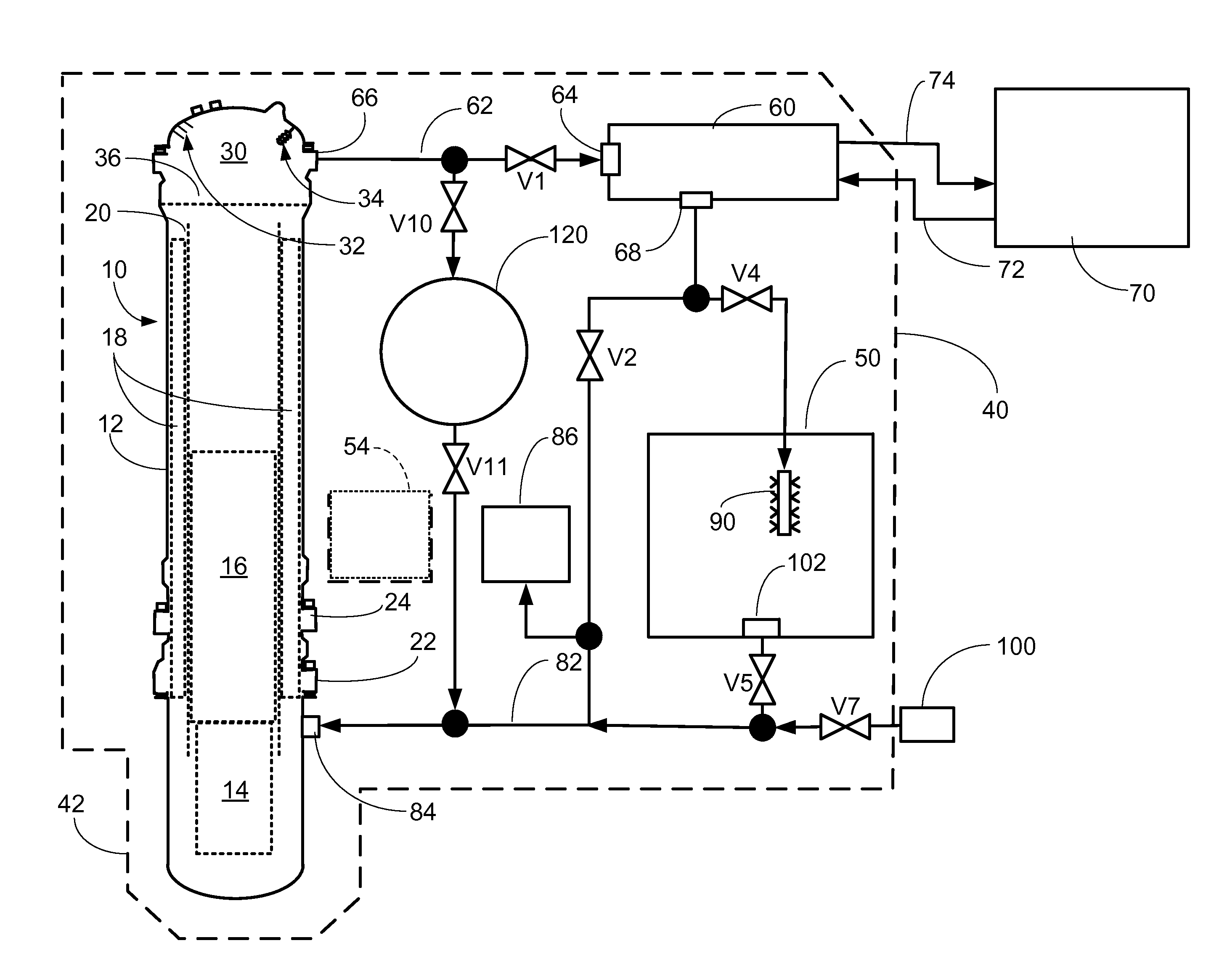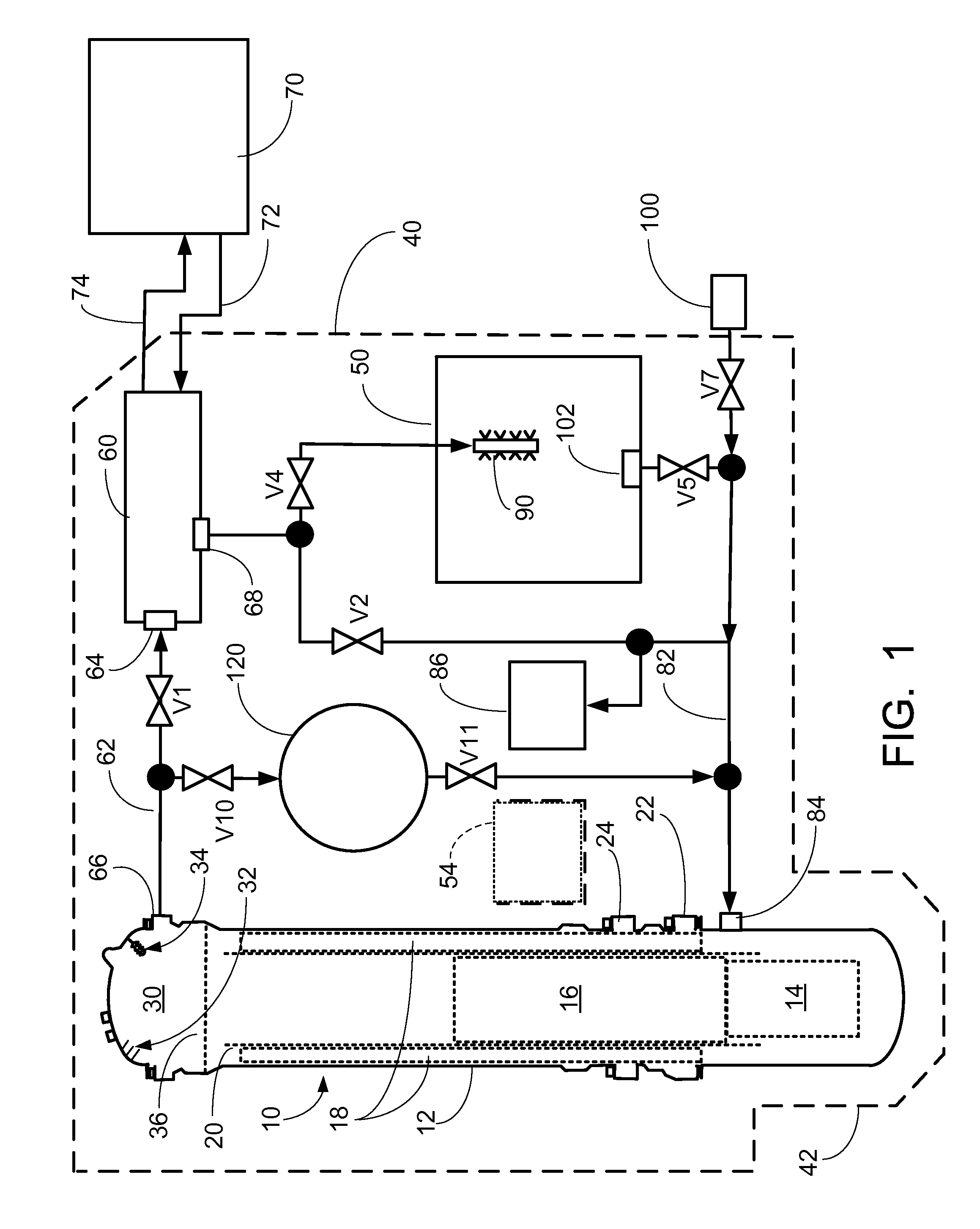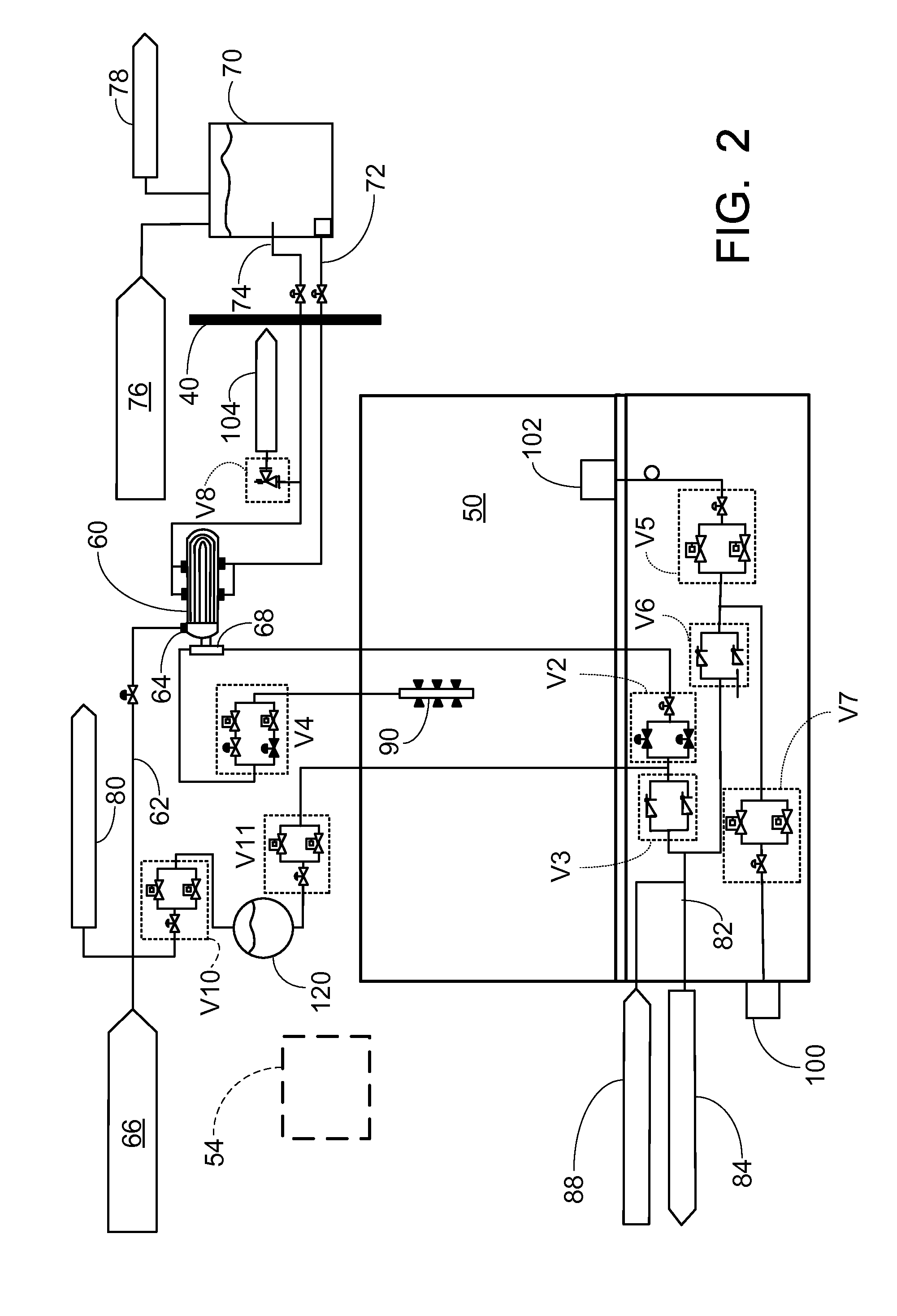Emergency core cooling system for pressurized water reactor
a technology of pressurized water and core cooling, which is applied in the fields of nuclear reactor arts, electrical power generation arts, nuclear reactors, etc., can solve the problems of affecting the operation of the control rod system, the loss of heat sinking provided by the secondary coolant, and the rapid and uncontrolled increase of the primary coolant pressure and temperatur
- Summary
- Abstract
- Description
- Claims
- Application Information
AI Technical Summary
Benefits of technology
Problems solved by technology
Method used
Image
Examples
Embodiment Construction
[0016]With reference to FIG. 1, an illustrative nuclear reactor of the pressurized water reactor (PWR) type 10 includes a pressure vessel 12, which in the illustrative embodiment is a generally cylindrical vertically mounted vessel. Selected components of the PWR that are internal to the pressure vessel 12 are shown diagrammatically in phantom (that is, by dotted lines). A nuclear reactor core 14 is disposed in a lower portion of the pressure vessel 12. The reactor core 14 includes a mass of fissile material, such as a material containing uranium oxide (UO2) that is enriched in the fissile 235U isotope, in a suitable matrix material. In a typical configuration, the fissile material is arranged as “fuel rods” arranged in a core basket. The pressure vessel 12 contains primary coolant water (typically light water, that is, H2O, although heavy water, that is, D2O, is also contemplated) in a subcooled state.
[0017]A control rod system 16 is mounted above the reactor core 14 and includes c...
PUM
 Login to View More
Login to View More Abstract
Description
Claims
Application Information
 Login to View More
Login to View More - R&D
- Intellectual Property
- Life Sciences
- Materials
- Tech Scout
- Unparalleled Data Quality
- Higher Quality Content
- 60% Fewer Hallucinations
Browse by: Latest US Patents, China's latest patents, Technical Efficacy Thesaurus, Application Domain, Technology Topic, Popular Technical Reports.
© 2025 PatSnap. All rights reserved.Legal|Privacy policy|Modern Slavery Act Transparency Statement|Sitemap|About US| Contact US: help@patsnap.com



